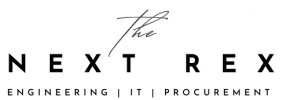Google is planning to add a feature to Chrome that will block a certain type of ads so that user will not be able to see them. The feature will also be able to block all the ads on sites which don’t meet some standards.
Google Chrome Ad Blocker
Alphabet, Google’s parent company, says it is interested in working with publishers to explain to them which types of ads are no longer acceptable. Google wants the standards on which this feature will operate to be based on what industry groups tell it. Google has a large share in the online ad market. It has been criticized for talking about this feature. Google has even contacted some publishing partner regarding this plan. The idea has raised concerned about Google’s anti-competitiveness. Chrome will have ad blocking feature that will remain on by default. Google likes to call this feature ad filtering. Google says that annoying ads will not be shown. Sites that show substandard ads will also be affected. Some examples of ad types that will be blocked include auto-play videos (thank God), pop-ups (thank God), and pre-stitial ads i.e ads that run a countdown before can see the intended content (thank God). So far, so good. On the flip side, some publishers rely on these to generate revenue. Google is planning to introduce Funding Choices which will let publishers notify users when their ads are blocked. This will give readers the choice to disable ad blockers or purchase an ad-free subscription for that website. Apparently, Google pays Eyeo, which is a German company that owns AdBlock, to whitelist its ad so that they are not blocked. Google says that the standards for acceptable advertising will be developed by Coalition For Better Ads, which is an industry group that has advertisers and other industry groups, like Google, News Corp., and Facebook. This feature can be appealing for publishers and users. Annoying ads like pop-unders, popups, auto-playing videos, and interstitials have made people install software like AdBlock. This makes publisher lose money and make them even more annoying. Some media companies argue that they indulge in such behavior because Facebook and Google have sucked up most of the advertising business. There is little left for them. According to an estimate by Pivotal Research, Facebook and Google control over 75 percent of the $70-billion American digital ad industry. Last year, Google and Facebook accounted for all the industry growth. Chrom also has 58% share of the browser market. Internet Explorer and Firefox also have ad blockers, but advertising companies don’t own them. So, in essence, Chrome ad blocker will block ads for most of the web users because it controls a lot of the market.
Also Read: Prevent Page Jumps With Anchoring On Google Chrome
We can’t say yet if Chrome ad blocker will improve the user experience. What’s certain is that Google will increase its control of the advertising industry and command increasing dominance in the way media companies and publishers earn money.

